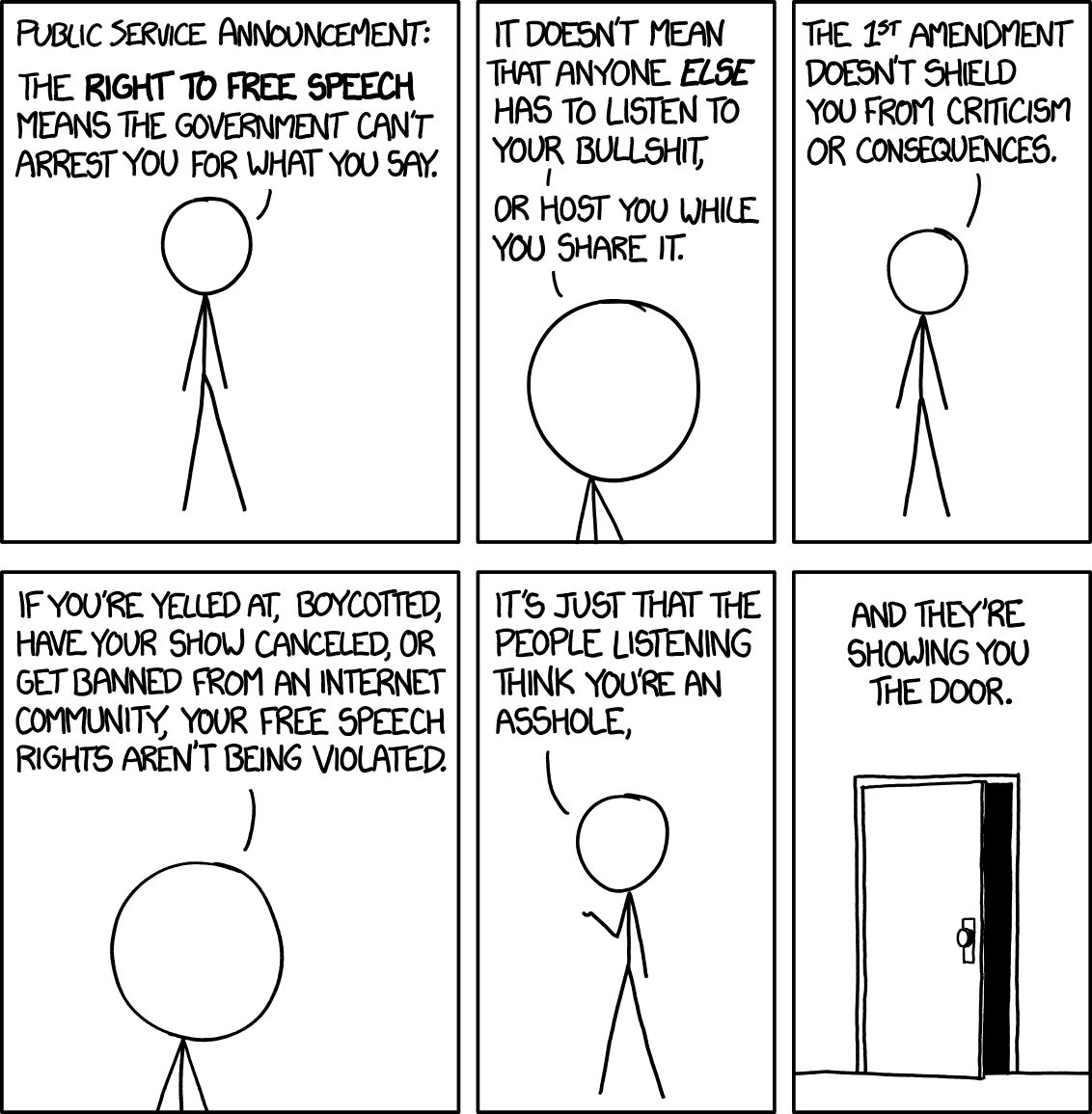Facebook can and does actively promote a political agenda.
They even formed a Political Action Committee, FB PAC, through which they donate money to various politicians and PACs (and contrary to right-wing narrative, they have been known to give more money to GOP causes).
They also sell advertising space on their website for political ads, though this is a case of them promoting someone else's political agenda for money.
As for the user-generated content.
Social media websites give people the privilege (not a right) of using their services, typically free of charge, and that privilege can be revoked.
They have the right to delete any content they wish for whatever reason they want, or even no reason whatsoever. This is how they are able to block or delete things that may be legal but unpleasant.
- spam
- pornography
- horrific or disturbing content (use your imagination)
- links to malware
How does the First Amendment apply?
The First Amendment protects people from the government by limiting what the government can do. That's why contrary to popular belief the First Amendment doesn't protect you from being banned from a website.
Now if the government were to try to force a website to accept someone as a member, they would quickly run into an issue with the First Amendment right to Freedom of Association which guarantees an organization the right to exclude people from membership (even against people of Protected Classes to some extent, which political views definitely are not).
While completely irrelevant to the question of what is legal, some people might try to say.
But... But... But... The principle of freedom of speech is that I should be able to say anything I want without fear of any consequences or retaliation!
But that makes no sense. If someone comes onto your property and starts shouting "This person is a lizard man!" you get to use your right to free speech and association to call that person an idiot and throw them off your property. They can call you a lizard man all they want on their property or public land (they still have free speech), but they don't get to encroach on your right to not do that on your property (your free speech). That's how freedom of speech works regardless of any specific laws.
Speech has social consequences, else there would be no point in speaking.
What's this Section 230 people keep talking about?
Much like the First Amendment, not what many people think or claim it is. To better understand it, the EFF has written some excellent articles on the subject.
